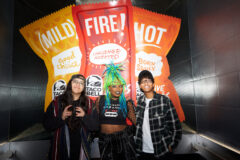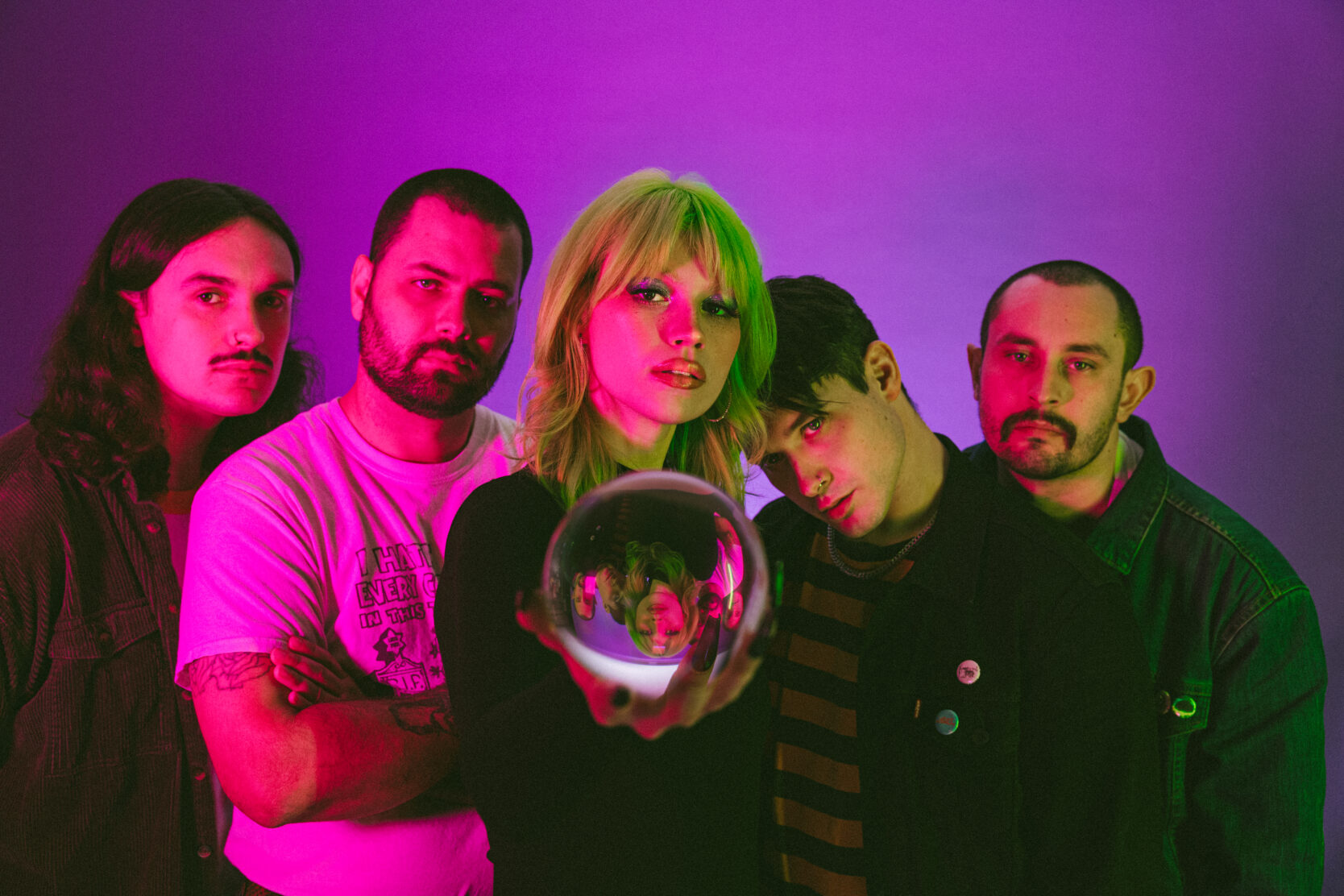Inside of Scowl, there are two wolves.
One wants to be the best hardcore band on the planet, while the other seeks a diverse sound inspired by various bands across the alternative rock universe.
On the Santa Cruz, Ca.-based band’s first two EPs, and for much of 2021’s How Flowers Grow, the first wolf was clearly winning. But Scowl’s debut full-length also showed glimpses of the ferocity of that other side, specifically via the clean vocals and saxophone of “Seeds to Sow” and the pulsing groove of “Four Walls.”
Then came this year’s EP, Psychic Dance Routine, a 10-minute exploration that brought Scowl into new sonic territories and fan bases that aren’t necessarily into the growls and screams of hardcore. The EP’s five songs start with the screaming verses and slower chorus of “Shot Down,” continuing through the dance-worthy title track that would be a massive hit for the Yeah Yeah Yeahs, and even throwing in a Live Through This-like song with “Opening Night.”

Also Read
Yo Quiero Hardcore
But despite the varied genres, influences and comparisons, it all comes together to form a cohesive sound that’s uniquely Scowl.
“We as individuals have such a wide variety of music tastes, so we wanted to showcase that inspiration and its relevance in our lives as individuals and as a band,” vocalist Kat Moss says, her bright green hair and eyebrows shining under the Los Angeles sun, as the band stops by USC’s campus ahead the first show of their recent tour in nearby downtown. “I feel like How Flowers Grow was our first attempt at writing as a solidified hardcore band, whereas Psychic Dance Routine was us taking things a creative and experimental route. I’m excited to see what comes next as we blossom as musicians.”
“I think a lot of people talk about how Psychic Dance Routine is such a stray from the path, but if you look between the lines of some of our earlier work, it hints at that sound,” bassist Bailey Lupo adds, sitting on a set of concrete steps.
Of course, any hardcore band that earns popularity outside of the scene is going to draw its detractors, and most of Scowl’s can be conveniently confined into the box of dudes saying they’re not “really hardcore” or even accusing them of being “industry plants” because Moss isn’t a disheveled guy in a baseball cap. Her elaborate outfits might not always be mosh pit-friendly, but no one else is letting loose guttural screams and hardcore dancing in a dress like she will. With a handful of songs that would make elite indie pop bands jealous, Scowl is breaking down the sonic and stylistic barriers of hardcore’s sometimes militant community the same way that bands like Bad Brains did 40 years ago — but unlike the early acts, the NorCal rockers are hardcore kids who value the community that raised them as fans before they became the next generation of leadership.
“I can look at everyone in Scowl and recognize that we’re all here because we love hardcore and the community,” Moss says. “The most enticing and exciting thing about hardcore to me was the fact that it made me feel different. I had a space to celebrate my uniqueness and to meet people who felt the same way about themselves. I’ve never had more friends in my life than when I started going to shows. It’s this community that I’m very fortunate to be a part of.”
As a band that has been touring seemingly endlessly since the end of the pandemic, it’s easy to forget that the “sound” Scowl moved away from on Psychic Dance Routine was only about a half-hour of material. The rapid ascent that’s come with diversifying their sound has taken the quintet from the brightest star in the Santa Cruz hardcore scene to the national stage, earning all of the praise, criticisms, sexism and ridiculous rumors that go along with it. They’re very much still going through the growing pains of being a young band discovering their sound, except they’re doing it while opening arenas for Limp Bizkit and others and headlining mid-sized venues.
“Personally, the pressure is hard to explain with words, and something that I think we collectively underestimated,” Moss says. “A lot of the ‘hype’ has been something completely unexpected and that we were unprepared for. We’re not complaining by any means, but it’s a level of pressure we didn’t expect. It makes us think hard about every choice that we make collectively as a band and as people.”
“It was sink or swim for us because it went from a couple of tours to opening a tour where there were arenas — and then after that, you’re always playing bigger rooms,” adds guitarist Greene. “We had to just step up and play as best we could. It had a ‘fake it ‘til you make it’ aspect in that we just had to get up there and do it.”
So far, the lack of planning and preparation have paid off. Their recent headlining tour with Militarie Gun and MSPAINT was an example of what the future of hardcore music looks and sounds like, and the direction of Scowl’s sophomore album is as anticipated as any in the entire scene right now. Whether they opt to stick in the traditionally hardcore lanes, expand into more diverse and accessible sounds, or explore something new altogether, it seems that Scowl are primed to explode in any direction they choose.




